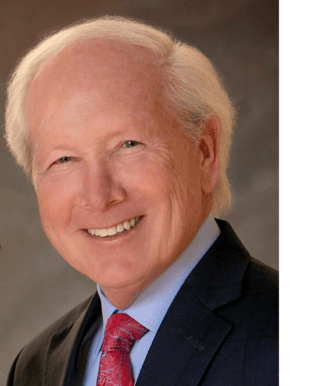Change is Good
Last Updated February 18, 2022

Written by: Dennis Swan, Contributor
Professional burnout was a significant concern long before the prolonged pandemic. Dealing with COVID-19 for almost two years, with no relief in sight, has employees struggling to battle frustration, physical exhaustion and compassion fatigue. This is especially true in healthcare. Unprecedented workforce shortages are compounding workplace, pandemic-related stress. Unfortunately, the burnout solution for many, who are nearly giving up, is to resign, retire or otherwise leave their organization or chosen occupation.
Recognizing the signs and symptoms of burnout in others generally seems easier than diagnosing oneself. People tend to naturally fear looking vulnerable or weak in the eyes of leaders or co-workers. Therefore, it is exceedingly difficult to admit being overwhelmed by the crushing pressure of the steadily increasing expectations and demands of others.
Overcoming Burnout
There is a growing list of initiatives that leaders can implement to try to help the team cope with work-site pressures and stressors. Examples include self-care strategies and techniques such as:
- Resilience training
- Meditation
- Yoga
- Setting boundaries
- Encouraging staff to speak up about concerns
However, it should also be acknowledged that factors contributing to professional burnout are not all work centered. There are non-work, personal and home-life stressors that combine with work pressures to drain staff member energy, enthusiasm, job satisfaction, and a sense of well-being.
What employees and employers choose to do about burnout is important and single, “silver bullet” solutions are not likely. Confronting and overcoming burnout will take more than self-care strategies and improved coping skills. Substantial workplace changes and sufficient dedicated resources are needed to help prevent burnout rather than simply treating the symptoms. The solutions must also focus on how people are valued, supported and respected. Therefore, more will be required than improvements in compensation and benefits.
Change Starts at the Top
People tend to see the need for change in others around them. As Dilbert (written by Scott Adams) once said; “Change is good, you go first.” To effectively address burnout, leaders should lead the way by personally “going first” and holding themselves accountable for making changes intended to benefit the people facing a barrage of workplace and home stressors. Leaders must change their own behavior which contributes to burnout. Setting a new example is key but should also be accompanied by supplying sufficient resources, especially proper staffing, so that team members can do their jobs well.
Regardless of the organization’s carefully chosen slogans, value statements or other lofty promises, how are team members interpreting, or being impacted by, leadership’s customary actions? For example, do leaders seek to demonstrate their own endurance and passion for high performance by chronically working excessive hours; skipping breaks and vacations; never disconnecting from email, phone and text messages; always saying “yes” whenever asked about additional work assignments; or being prone to underestimating the time needed for project completion? If so, through delegation of authority, there is likely to be a domino effect on the team’s workload. Importantly, in haste to prove how much can be accomplished, are there frequent failures to treat everyone, in every interaction, with understanding, appreciation and respect?
Leaders Take the First Step
In healthcare, caregivers, and the people and families they care for, deserve to have leaders who recognize and seek to eliminate, avoid or reduce workplace stressors. Which ones should be focused on first? Try actively listening to members of the team. Burnout prevention or reduction will take an exceptional amount of patience, an open mind and self-discipline to take the needed actions. Change requires courage. The process will also require appropriate staffing levels, along with new levels of teamwork, compassion and trust. Initial doubt and cynicism will likely be encountered. However, providing staff with opportunities for meaningful involvement in designing and implementing possible solutions can make success far more likely.
Leaders truly dedicated to achieving and sustaining high performance will commit to consistently demonstrating that they care for, value and respect each member of the team. The organization’s mission, vision, values and the expectations of the people served, require intense focus and hard work by people in every role. Team members deserve a healthy workplace which allows them to proudly and skillfully do their challenging jobs. If talented, knowledgeable and caring people are to be successfully recruited, retained and developed, the emphasis must be on preventing and avoiding burnout and not be limited to only treating the signs and symptoms. Bold, flexible and enterprising organizations will make the necessary workplace transformations. Those employers can expect to become marketplace leaders through the attraction and retention of qualified and committed caregivers, in sufficient numbers, to deliver quality, safe, compassionate and cost-effective care.
Bio: Dennis A. Swan became Sparrow Health System President and CEO in June 2005 after serving as interim president beginning November 1, 2004. He retired January 2, 2019. A member of the Sparrow executive team over 37 years, Swan previously served as Sparrow’s Senior Vice President of Operations and Chief Operating Officer.

Swan is a Life Fellow in the American College of Healthcare Executives. His is a Past Board Chair of Affirmant Health Partners, the Caymich Insurance Company, Ltd., the Michigan Health and Hospital Association (MHHA), the Lansing Economic Area Partnership (LEAP), and the Capital Area United Way.
Among his awards are: AHA Grassroots Champion, MHHA Meritorious Service, Boy Scouts Distinguished Citizen, LEAP Legacy, United Way Outstanding Volunteerism, and Western Michigan University Alumni Outstanding Achievement.
Dennis graduated manga cum laude from Western Michigan University with a bachelor of arts degree. He earned his law degree, with honors, from Western Michigan University Cooley Law School. Prior to joining Sparrow in 1981, he had a 12-year career with two leading bank holding companies.


